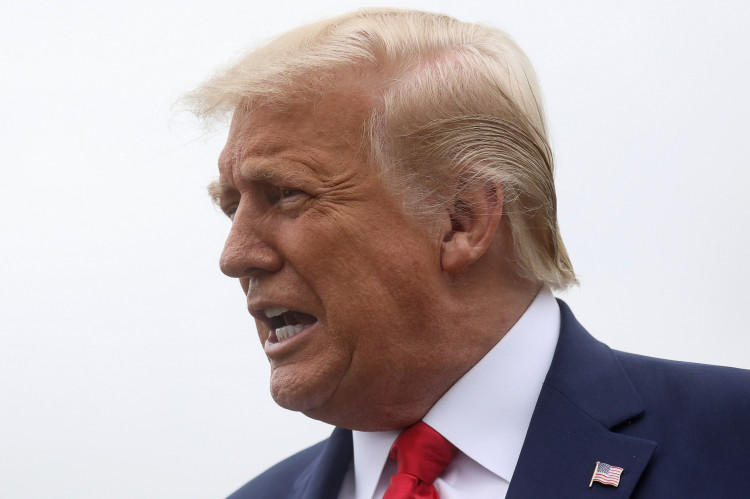President Donald Trump has issued a sweeping executive order that effectively dismantles diversity, equity, inclusion, and accessibility (DEIA) programs across the federal government, marking a stark shift in policy. The order, signed this week, revokes decades of affirmative action practices and threatens to extend enforcement into the private sector, potentially putting corporate diversity efforts on shaky legal ground.
The move has sparked fears among civil rights advocates and DEI supporters, who warn that the executive order could trigger a "witch hunt" against diversity initiatives. Jocelyn Frye, president of the National Partnership for Women & Families, criticized the order, stating, "You can't have a commitment to ending discrimination and then get rid of the tools that help you end discrimination."
Under the new directive, federal agencies must identify DEI programs and employees, placing the latter on paid administrative leave. Agency leaders have been instructed to submit plans for layoffs of DEI personnel by January 31, and to dismantle any DEI-related websites, social media accounts, or training initiatives by Thursday.
Emails sent to federal employees this week warned of "adverse consequences" for failing to report colleagues involved in DEI work, signaling a heightened level of scrutiny. The Office of Personnel Management (OPM) provided template language for these emails, which encouraged staff to report efforts to disguise DEI initiatives through "coded or imprecise language."
"Penalizing career civil servants for faithfully doing their jobs during a prior administration is wrong," said Max Stier, president and CEO of the Partnership for Public Service. "The abrupt and rushed approach chosen here will have a traumatizing impact not just on the affected employees but on their colleagues who remain in their roles serving the public."
Trump's executive order also rolls back landmark policies dating back to the Johnson administration, including requirements for federal contractors to adopt non-discriminatory hiring practices. Critics, including Marc Morial, president of the National Urban League, view the move as "an assault on the civil rights movement and everything we've achieved in the last 60 years."
Civil rights organizations have condemned the administration's actions. Brenda Victoria Castillo, president of the National Hispanic Media Coalition, emphasized the economic importance of diversity initiatives. "Anti-diversity is anti-business," she said. "Representation in leadership and media isn't just morally right. It's essential for success in a diverse America."
While the administration argues that the order seeks to promote equality and eliminate discrimination, opponents highlight the potential economic and legal ramifications. A recent Axios Vibes/Harris Poll found that a majority of Americans either oppose or remain unsure about rolling back diversity programs. Furthermore, 74% of global CEOs surveyed by the AlixPartners Disruption Index stated that their DEI initiatives had positively impacted their bottom lines.
Corporate leaders have also pushed back against the anti-DEI agenda. JPMorgan Chase CEO Jamie Dimon defended the bank's diversity efforts during a CNBC interview, stating, "Wherever I go-red states, blue states, green states-they like what we do."
The dismantling of DEI programs follows a significant expansion of such initiatives under President Joe Biden, whose administration sought to address systemic inequities and ensure federal agencies reflected the nation's diversity. Alaysia Black Hackett, who served as chief diversity and equity officer at the Labor Department under Biden, emphasized that DEI work is not limited to racial issues but also aims to create pathways to economic opportunity for underserved communities.
Hackett criticized the rollback, noting that diversity initiatives are integral to ensuring government programs serve all Americans effectively. "When you think about who was in the room during the creation of the Constitution, there was one vantage point, one lens, which was white male men," she said.
The administration's actions are expected to face legal challenges, with civil rights groups and labor advocates preparing to contest the order. Meanwhile, federal employees affected by the directive are left uncertain about their future, as agencies rush to comply with the new guidelines.






